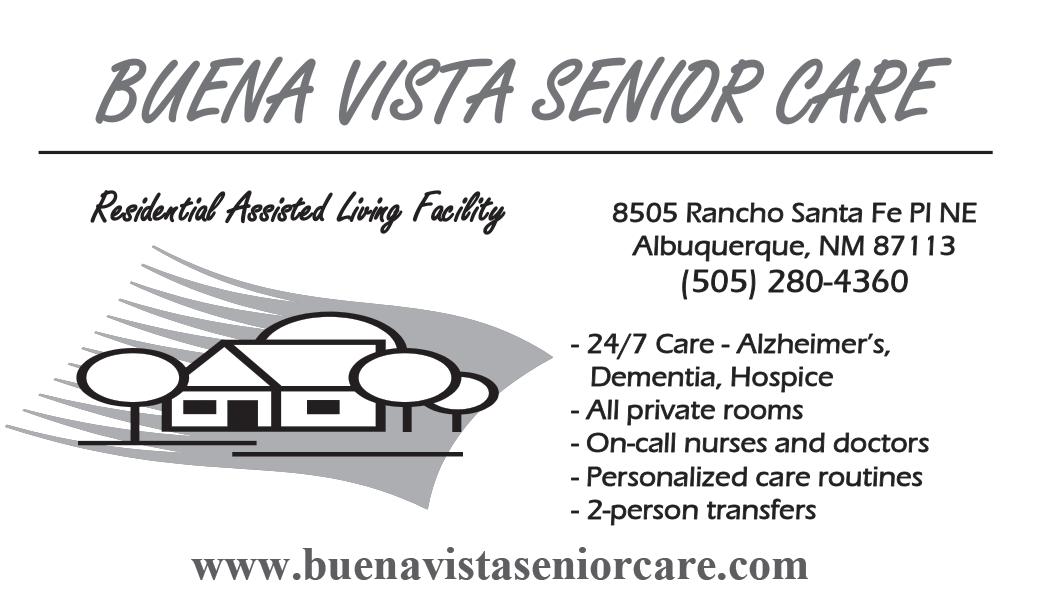PRIME TIME
Prime Time Publishing, LLC Home of Prime Time Monthly News Family Caregivers Resource Guide 50+ EXPO
Publisher/Editor
David C. Rivord primetime@swcp.com
Sr. Advertising Executive Joe A. Herrera primesales@swcp.com
Art Director
Ashley Conner primeart@swcp.com
Graphic Designer/ House Photographer Dana Benjamin
Webmaster
Gary Rivord webmaster@primetimenm.com
Copy Editor
Autumn Gray
Calendar Editor Liz Otero
Contributing Writers
Ask A Health Care Pro. (cont.) (continued from previous page)
What can happen if CKD is not treated? Different levels of CKD range from mild disease to kidney failure. When the kidneys fail they have stopped working completely. To stay alive, there are two options — dialysis or a kidney transplant. Dialysis is a procedure where the blood is artificially filtered to remove the waste. A kidney transplant is surgery in which a doctor puts a healthy kidney into a person whose kidneys have failed. Kidney transplants are the most common transplants performed in the United States. What kind of symptoms come with CKD? Since CKD usually develops over time, there may be no symptoms until the disease is severe. However, some people may experience non-specific symptoms, such as worsening fatigue, swollen ankles and feet, or even poor appetite. Testing is the only way to know if one has CKD. Screening can be done by a simple blood and urine test.
What should my action plan be? The most important thing you can do is talk to your primary care provider about kidney health and ask to get your kidney function tested yearly. Luckily, not all patients with kidney disease progress to kidney failure. To help prevent CKD and lower the risk for kidney failure, the best course of action is to control risk factors for CKD. If you have diabetes, stay in your target blood sugar range. Keep your blood pressure below 140 over 90 or the target blood pressure your doctor recommends. Lose weight if you are overweight. Eat right and get active. Take medicines as directed by your doctor; your doctor may prescribe medicines to protect your kidney from getting worse. Finally, quit smoking because smoking can also damage kidneys.
If you have a health question that you would like to be considered in Ask a Health Care Professional, please email AskHealthcareProfessional@ bcsbsnm.com. BCBSNM will select questions that may appear. Questions will not be personally answered. The opinions expressed in this column are solely those of the author and not necessarily those of BCBSNM. This column is not intended to be a substitute for professional medical care.
Get news and see event pictures on our new Facebook page at facebook.com/primetimepublishing!
P.O. Box 67560 Albuquerque, NM 87193
505.880.0470
The Publisher does not take responsibility for the accuracy or legitimacy of the advertiser’s message or that of the guest writer/columnists or any aspect of the business operation or conduct of the advertisers in the paper.
A ntAheaitgf ehneeblsigolhirkbheoohrhooomdoed.
tTho joaintusff oer aef rlese lulnickh aend lhearon me.
To join us f or aabf orueteoluur ncacrhingacnodmm leuanrinty, call about our carVinerga Sccohm af fm er uatn(i5t0y5,) c2a56ll-6216. Vera Schaf f er at (Al5l fa0iths5or)be2lief5s a6re w-e6lco2me1. 6. All faiths or beliefs are welcome.
5
As the Centers for Disease Control and Prevention notes, “Take care of your kidneys and they will take care of you!”
Dr. Wei-Ann Bay Beverly Allen Custer Autumn Gray Jim Miller Dr. Gerard Muraida Dr. Barry Ramo Dr. Shellie Rosen, D.O.M. Shannon Wagers
Visit us at ptpubco.com
April 2020




